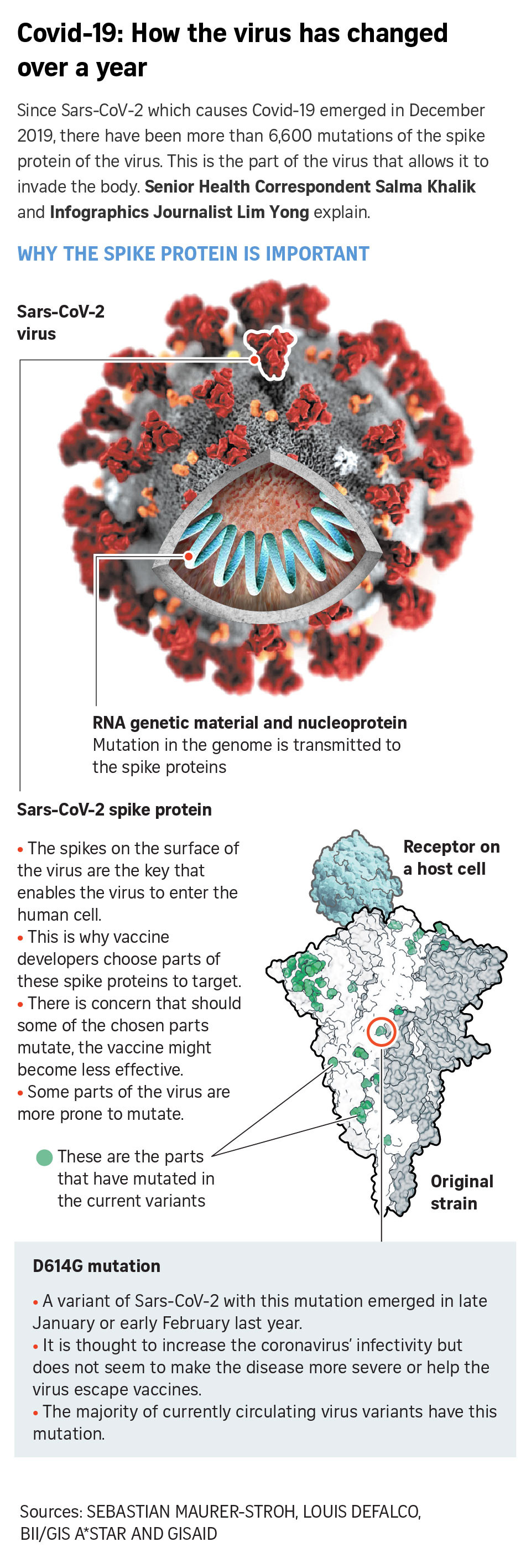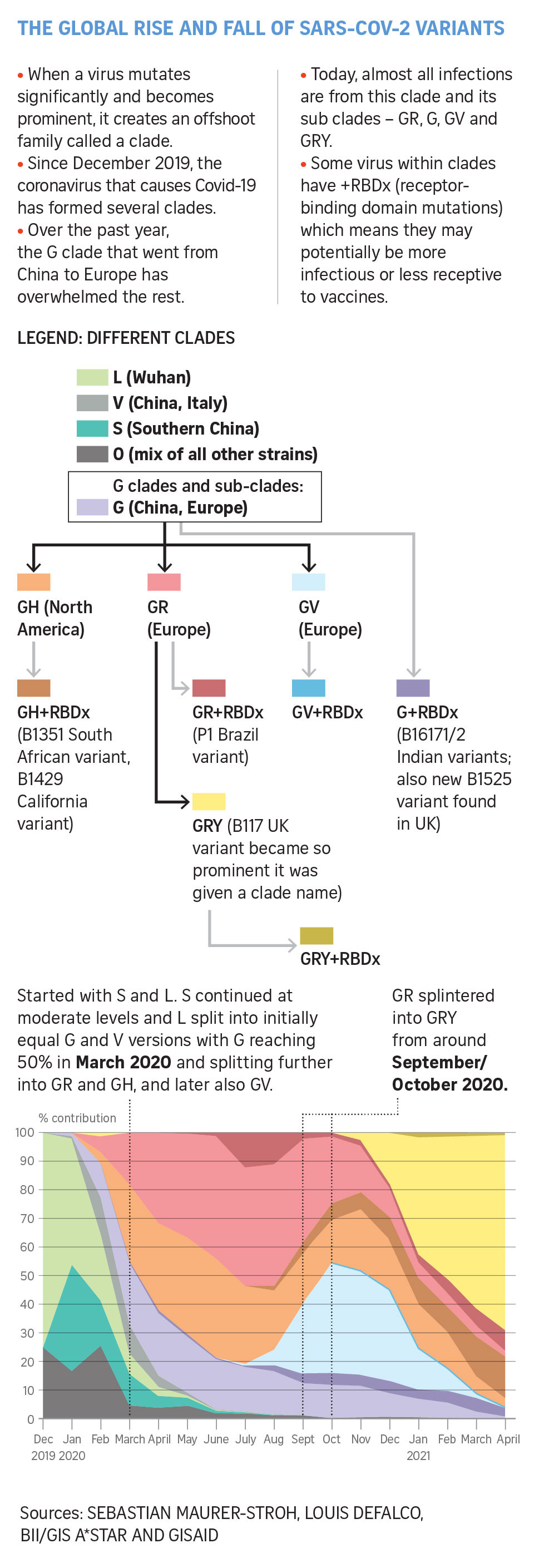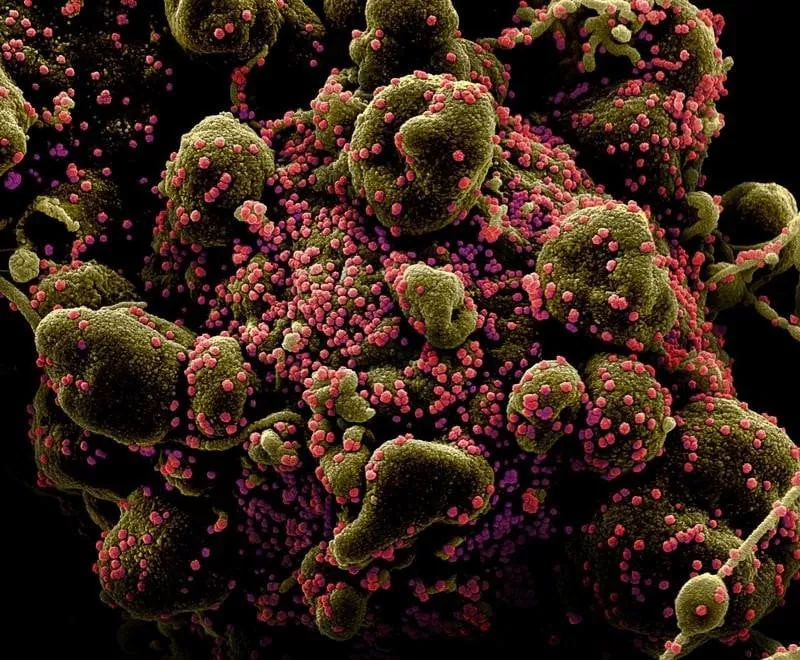'Coronavirus that causes Covid-19 mutated more than 6,600 times'
Describing Indian variant as 'double or triple mutant' a misnomer, says Dr Sebastian Maurer-Stroh
Director of the Bioinformatics Institute at the Agency for Science, Technology and Research Dr Sebastian Maurer-Stroh has revealed that the novel coronavirus that sparked the Covid-19 pandemic has undergone "more than 6,600 unique spike protein mutations".
Explaining why these mutations take place in a report published by The Straits Times, he said that the viruses mutate whenever there is a "mistake" in the replication process. "This could result from an addition, a deletion or a change to its genetic code," he said and added that if that mistake increases its survival prospects, more copies of that "wrong" replication will survive, and sometimes overwhelm the original version.
"For example, the D614G mutation which started to rise sharply in February last year is now found in all samples of the virus, no matter which variant they are. Because this variant became so pervasive, it was given a clade name - or family group - of its own, and is designated as G clade."
According to the report, the World Health Organisation (WHO) said that while the G clade has increased infectivity and transmission, the illness it causes is not more severe, nor does it affect diagnostics, treatment or vaccines.

To qualify as a variant of concern (VOC), Dr Maurer-Stroh explained, the mutated virus has to show evidence in fulfilling at least one of these criteria: that it transmits more easily, causes more severe illness, significantly reduces neutralisation by antibodies, or reduces the effectiveness of treatment, vaccines or diagnosis.
Read more: Pakistan study shows Covid-19 vaccines have low efficacy against UK variant
He said that not all mutations make a difference to the disease in these ways. Hence, these mutations do not make waves. Variants usually comprise a set of five to 15 mutations that, together, give them some added advantage.
'Describing Indian variant as double or triple mutant a misnomer'
Dr Maurer-Stroh said the terms "double mutant" or "triple mutant" variants used to describe the virus strains rampaging in India are therefore a misnomer, but broadly refer to the more significant mutations found in those variants.

"Fortunately, there are only three VOCs right now. However, there are several variants of interest (VOI) which appear to exhibit some of the characteristics of a VOC, but without sufficient evidence for the moment. That may change."
They include the two variants first detected in India that are causing the huge surge in cases over the past month, he added.
Also read: Mutation in new coronavirus increases chance of infection: study
There have been more than 6,600 unique mutations to the coronavirus' spike protein since it emerged in December 2019, said Dr Maurer-Stroh, who is involved in collecting and analysing changes to the viral genome under the Gisaid data-sharing platform, which has enabled global sharing of more than 1.5 million virus sequences. "This works out to one unique mutation every two hours, day or night."
Will vaccines prevent against new variants?
Professor Ooi Eng Eong of the Duke-NUS Medical School, who is himself involved in developing an mRNA vaccine, said that studies among vaccinated individuals have found that the mRNA vaccines are also capable of preventing infection from the various variants of concern.
"At least four reports have shown that the rate of breakthrough symptomatic variant Sars-CoV-2 infection has been below 1 per cent among vaccinated individuals."

Prof Ooi explained that vaccines do not just produce antibodies, but also "activate a suite of immune responses" in the body, including the production of T cells that kill both the virus and infected cells. These would not be affected by changes in the spike protein.
However, Associate Professor Hsu Liyang, an infectious diseases expert at the National University of Singapore's Saw Swee Hock School of Public Health, cautioned about assuming that current vaccines will remain as protective.
What applies today may not always be the case, he said. "We don't expect the virus to stay still. There will be more variants thrown up."
The article originally appeared in The Strait Times.


COMMENTS
Comments are moderated and generally will be posted if they are on-topic and not abusive.
For more information, please see our Comments FAQ